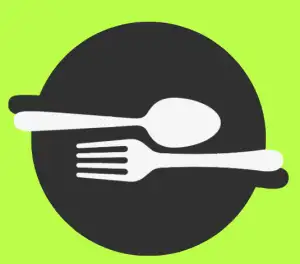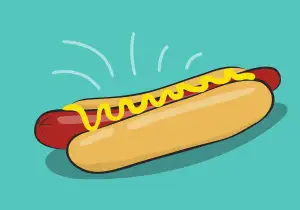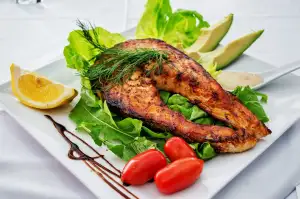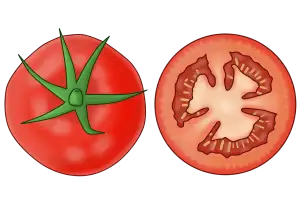Uncorking the Truth: Does Champagne Go Bad? Discover the Shelf Life of Bubbly Delights
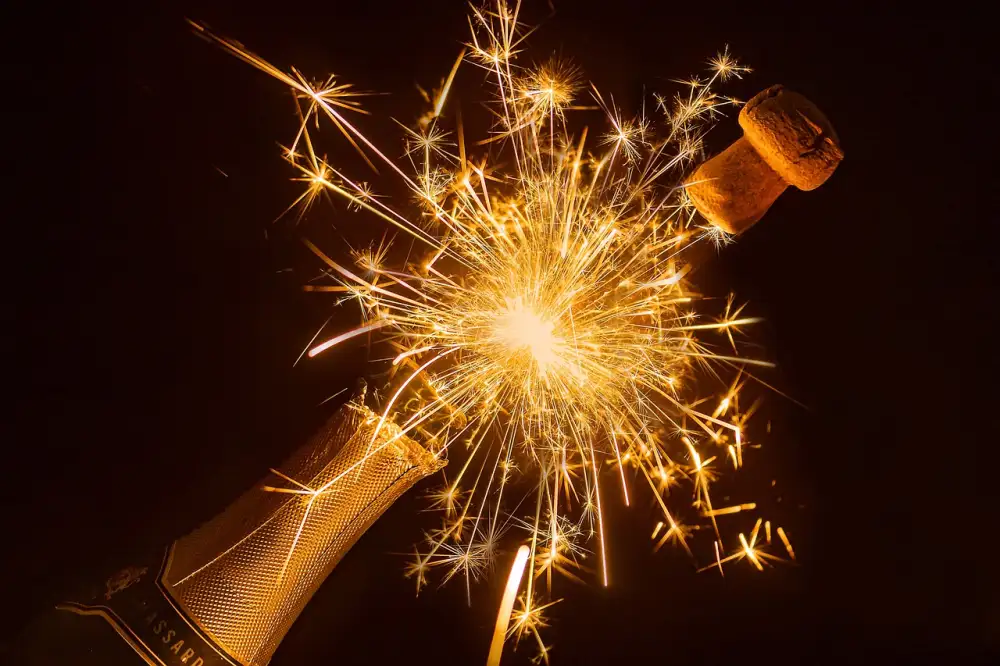
Champagne, the sparkling elixir synonymous with celebration and luxury, has long been a favorite among wine enthusiasts. But have you ever wondered how long this effervescent delight can be enjoyed? In this article, we delve into the intriguing world of champagne's shelf life. From understanding the aging process to identifying signs of spoilage, we uncover the secrets behind preserving champagne's freshness. So grab a glass and join us on this journey as we uncork the truth about champagne's longevity.
Understanding the Aging Process of Champagne
The aging process is an essential part of the development and flavor profile of champagne. Unlike still wines, champagne continues to evolve and improve over time. After the initial fermentation, the wine undergoes a second fermentation in the bottle, where it develops its signature bubbles.
During this secondary fermentation, yeast interacts with sugars to produce carbon dioxide, which gets trapped in the bottle. This process creates pressure and gives champagne its effervescence. As the champagne ages, these tiny bubbles become finer and more delicate.
The aging process allows for complex flavors to develop. Over time, the fruity and floral notes mellow out while more mature flavors like toast, brioche, and nuts emerge. The balance between acidity and sweetness also evolves as the wine matures.
Champagne houses carefully control this aging process by storing bottles in cool cellars for a specific period before release. Vintage champagnes are aged even longer to allow for further complexity.
It's important to note that not all champagnes benefit from long aging. Non-vintage champagnes are typically designed to be enjoyed within a few years of release when they are at their freshest and most vibrant. Vintage champagnes, on the other hand, can often age gracefully for decades if stored properly.
Understanding how champagne ages helps us appreciate its unique qualities and choose bottles that align with our preferences. Whether you prefer young and lively or mature and complex flavors, there's a champagne out there waiting to delight your palate.
Factors Affecting the Shelf Life of Champagne
Several factors can significantly impact the shelf life of champagne. The first is the quality of the wine itself. High-quality champagnes made from carefully selected grapes tend to have a longer shelf life compared to lower quality ones.
Another crucial factor is storage conditions. Champagne should be stored in a cool, dark place with a consistent temperature between 45-55°F (7-13°C). Exposure to light, heat, and fluctuations in temperature can accelerate the aging process and spoil the wine.
The level of carbonation also affects how long champagne stays fresh. Over time, the bubbles in champagne will naturally dissipate, resulting in a flatter taste. While this doesn't necessarily mean the champagne has gone bad, it may not provide the same enjoyable experience as when it was freshly opened.
Lastly, proper handling is essential for preserving champagne's freshness. Frequent shaking or agitation can disturb the sediment in older bottles and affect its flavor. It's best to handle champagne bottles gently and avoid unnecessary movement.
By considering these factors and taking appropriate measures, you can ensure that your bottle of bubbly delights retains its freshness and exquisite taste for as long as possible.
Signs of Spoiled Champagne
While Champagne is known for its long shelf life, it is not immune to spoilage. Here are some signs that your bubbly delight may have gone bad:
1. Flatness: One of the most obvious signs of spoiled Champagne is the loss of carbonation. If your Champagne lacks those lively bubbles and appears flat, it may be past its prime.
2. Off odors: A telltale sign of spoiled Champagne is a foul or unpleasant smell. If you detect any musty or rotten aromas, it's best to steer clear and opt for a fresh bottle.
3. Discoloration: Champagne should have a vibrant golden hue or a pale straw color. If you notice any browning or darkening in the liquid, it could indicate oxidation and spoilage.
4. Strange taste: Spoiled Champagne often has an off-putting taste that is noticeably different from its usual crisp and refreshing profile. If you detect any sourness, bitterness, or an overall unpleasant flavor, it's time to discard the bottle.
Remember, these signs are not always definitive proof of spoilage but can serve as indicators that your Champagne might be past its prime. It's always better to err on the side of caution when it comes to enjoying this effervescent delight!
Proper Storage Tips for Prolonging Champagne's Freshness
Proper storage is key to preserving the freshness and flavor of your cherished bottle of champagne. Here are some tips to ensure that your bubbly delights stay in top condition:
1. Keep it cool: Champagne should be stored in a cool place, away from direct sunlight and heat sources. Ideally, the temperature should be between 45-55°F (7-13°C). Avoid storing it in the refrigerator for extended periods as the constant temperature changes can affect its quality.
2. Store horizontally: Champagne bottles should be stored horizontally, with the cork in contact with the liquid. This helps keep the cork moist and prevents it from drying out, which could lead to oxidation.
3. Minimize vibrations: Champagne is sensitive to vibrations, so avoid storing it near appliances or areas prone to movement. Vibrations can disturb the sediment and alter the taste of the wine.
4. Maintain humidity: A moderate level of humidity (around 70%) is ideal for champagne storage. This prevents corks from drying out and allows them to maintain a tight seal.
5. Avoid strong odors: Champagne easily absorbs odors, so store it away from strong-smelling substances like spices or cleaning products. This will help preserve its delicate aromas.
By following these storage tips, you can prolong the freshness and quality of your champagne, ensuring that every sip remains a delightful experience worth savoring.
Frequently Asked Questions about Champagne's Shelf Life
1. How long does champagne last after opening?
Once opened, champagne can retain its freshness for up to 3-5 days if properly stored in the refrigerator with a tightly sealed stopper or champagne closure.
2. Can you drink expired champagne?
While it won't be harmful to consume expired champagne, the taste and quality will deteriorate over time. It's best to enjoy champagne within its recommended shelf life for the optimal experience.
3. Does vintage champagne have a longer shelf life?
Yes, vintage champagnes often have a longer aging potential due to their higher acidity and complex flavors. Properly stored vintage champagnes can age gracefully for several years, enhancing their taste and character.
4. Can I store an opened bottle of champagne at room temperature?
It is not recommended to store an opened bottle of champagne at room temperature as it will accelerate oxidation and spoilage. Always refrigerate it promptly after opening to maintain its freshness.
5. Is it possible to revive flat champagne?
Unfortunately, once the bubbles in champagne dissipate, they cannot be restored. However, you can repurpose flat champagne by using it in cooking or making cocktails.
Remember that these answers are general guidelines, and individual champagnes may vary slightly in terms of shelf life. It's always best to check the specific recommendations provided by the producer or consult with a wine expert for more precise information on your favorite bottle of bubbly.
In conclusion, understanding the shelf life of champagne is crucial for ensuring that you enjoy this bubbly delight at its best. While champagne does not necessarily go bad, it can lose its freshness and flavor over time. By considering the factors that affect its shelf life and following proper storage tips, you can prolong the lifespan of your champagne and savor it in all its effervescent glory. So, whether you're celebrating a special occasion or simply indulging in a glass of bubbly, remember to uncork the truth about champagne's shelf life and enjoy every sip to the fullest. Cheers!
Published: 18. 11. 2023
Category: Food
